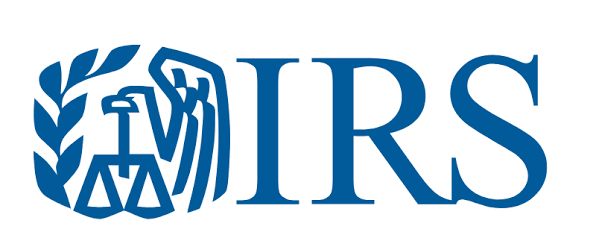The mainstream media is celebrating big time over a recent ruling by the Supreme Court that forces the Treasury Department to deliver President Trump’s income-tax returns to Congress. A good example is the Washington Post, which published an editorial last week praising the ruling. Since there is still the possibility that Congress will fail to disclose Trump’s ( tax returns to the public, the Post is calling on Congress and the states to enact laws that force presidential candidates to disclose their tax returns to the public. The Washington Post was founded in 1877. I wonder what the Post’s editorial board felt about the fact that the following presidents failed to disclose their income-tax returns: James Garfield (1880-1884), Grover Cleveland (1884-1888),
Topics:
Jacob G. Hornberger considers the following as important: 6b.) The Future of Freedom Foundation, Featured, Hornberger's Blog, newsletter
This could be interesting, too:
Nachrichten Ticker - www.finanzen.ch writes Die Performance der Kryptowährungen in KW 9: Das hat sich bei Bitcoin, Ether & Co. getan
Nachrichten Ticker - www.finanzen.ch writes Wer verbirgt sich hinter der Ethereum-Technologie?
Martin Hartmann writes Eine Analyse nach den Lehren von Milton Friedman
Marc Chandler writes March 2025 Monthly
The mainstream media is celebrating big time over a recent ruling by the Supreme Court that forces the Treasury Department to deliver President Trump’s income-tax returns to Congress. A good example is the Washington Post, which published an editorial last week praising the ruling. Since there is still the possibility that Congress will fail to disclose Trump’s ( tax returns to the public, the Post is calling on Congress and the states to enact laws that force presidential candidates to disclose their tax returns to the public.
The Washington Post was founded in 1877. I wonder what the Post’s editorial board felt about the fact that the following presidents failed to disclose their income-tax returns: James Garfield (1880-1884), Grover Cleveland (1884-1888), Benjamin Harrison (1888-1892), Grover Cleveland (1892-1896), William McKinley (1896-1904), Theodore Roosevelt (1904-1908), and William Howard Taft (1908-1912).
My hunch is that the Post did not publish any editorials calling on those presidents to disclose their income-tax returns. Why do I have that hunch? Because those presidents didn’t have income-tax returns to disclose. That’s because our American ancestors brought into existence a system in which there was no taxation on income and, therefore, no income-tax returns and no IRS.
That’s right: From the time the Constitution was ratified until the year 1913 (with the Civil War being the sole exception) — the American people were free to keep everything they earned and to decide for themselves what to do with it. They didn’t have to keep track of their deductions. They didn’t have to rush down to the Post Office on April 15 to send in their tax returns. They didn’t have to have to see part of their income withheld by their employer. They didn’t have to fear IRS audits or harassment.
In the eyes of our American ancestors, that was, in large part, what it meant to be free. When people are free to keep and accumulate the entire fruits of their earnings and decide for themselves what to do with their own money, they are the masters of their own fate.
On the other hand, when the government wields the power to seize whatever percentage of people’s income it wants, people become weak, subservient, compliant, and obedient serfs of their federal sovereign. They also become subject to being bribed with their own money by statist politicians at election time.
There is also the principle of financial privacy to consider. What business is it of government (or anyone in society, including the Washington Post) how much money someone makes and what he does with his money? The fact is that it’s nobody’s business. An essential aspect of a free society is the right to keep one’s financial affairs private.
In a genuinely free society a presidential candidate would be free to disclose any personal financial information he wanted, to assure voters with respect to things like potential conflicts of interest. But he wouldn’t be required to. By the same token, voters could factor in the candidate’s decision on financial disclosure in deciding who to vote for. Obviously, Trump’s decision to keep his tax-returns confidential did not preclude many millions of voters from voting for him, much to the chagrin of income-tax statists.
 One big problem is that income taxation has become such an enormous part of the federal governmental structure that no one, except libertarians, questions it. We have all been born and raised under this system. We’ve all become accustomed to having the government decide how much our income it is going to permit us to keep. It’s like being given an allowance by our parents. In the process, Americans have been inculcated with a deep fear of the IRS, which is actually one of the most tyrannical agencies in U.S. history.
One big problem is that income taxation has become such an enormous part of the federal governmental structure that no one, except libertarians, questions it. We have all been born and raised under this system. We’ve all become accustomed to having the government decide how much our income it is going to permit us to keep. It’s like being given an allowance by our parents. In the process, Americans have been inculcated with a deep fear of the IRS, which is actually one of the most tyrannical agencies in U.S. history.
We’ve all been taught that income taxation and the IRS are the “new freedom” and that we should thank God we are Americans because at least we know we’re “free.” The plight of the American people, including those on the editorial board of the Washington Post, can best be summed up in the immortal words of Johann Goethe: None are more hopelessly enslaved than those who falsely believe they are free.
Tags: Featured,Hornberger's Blog,newsletter
